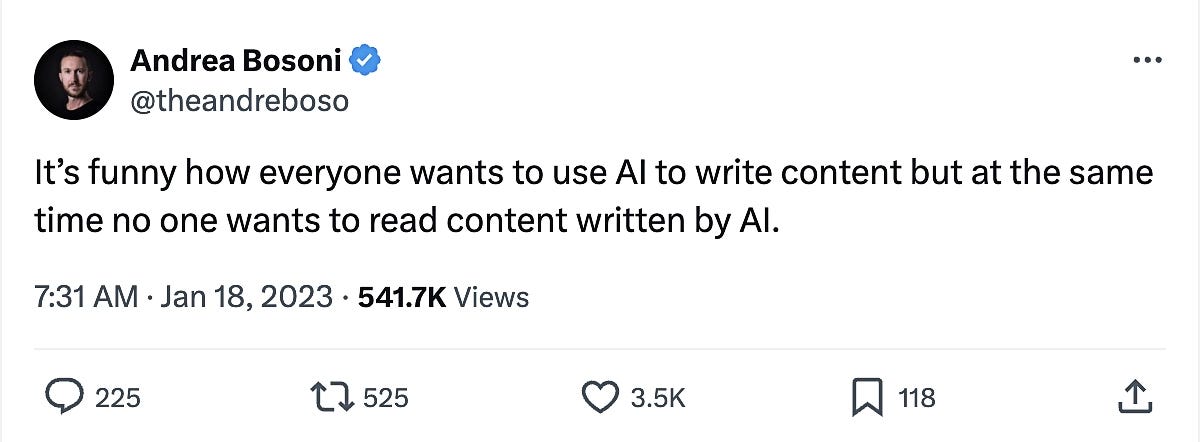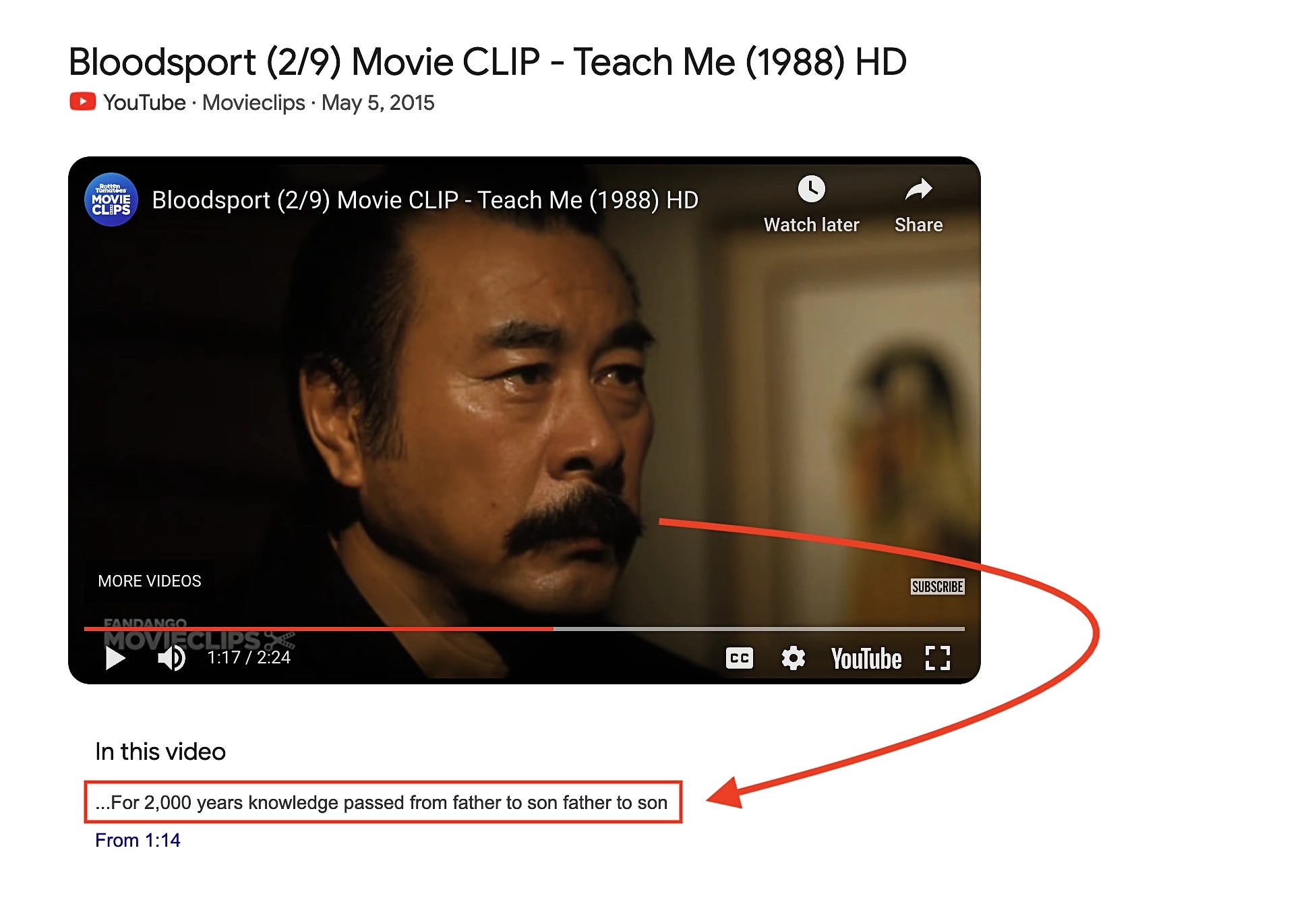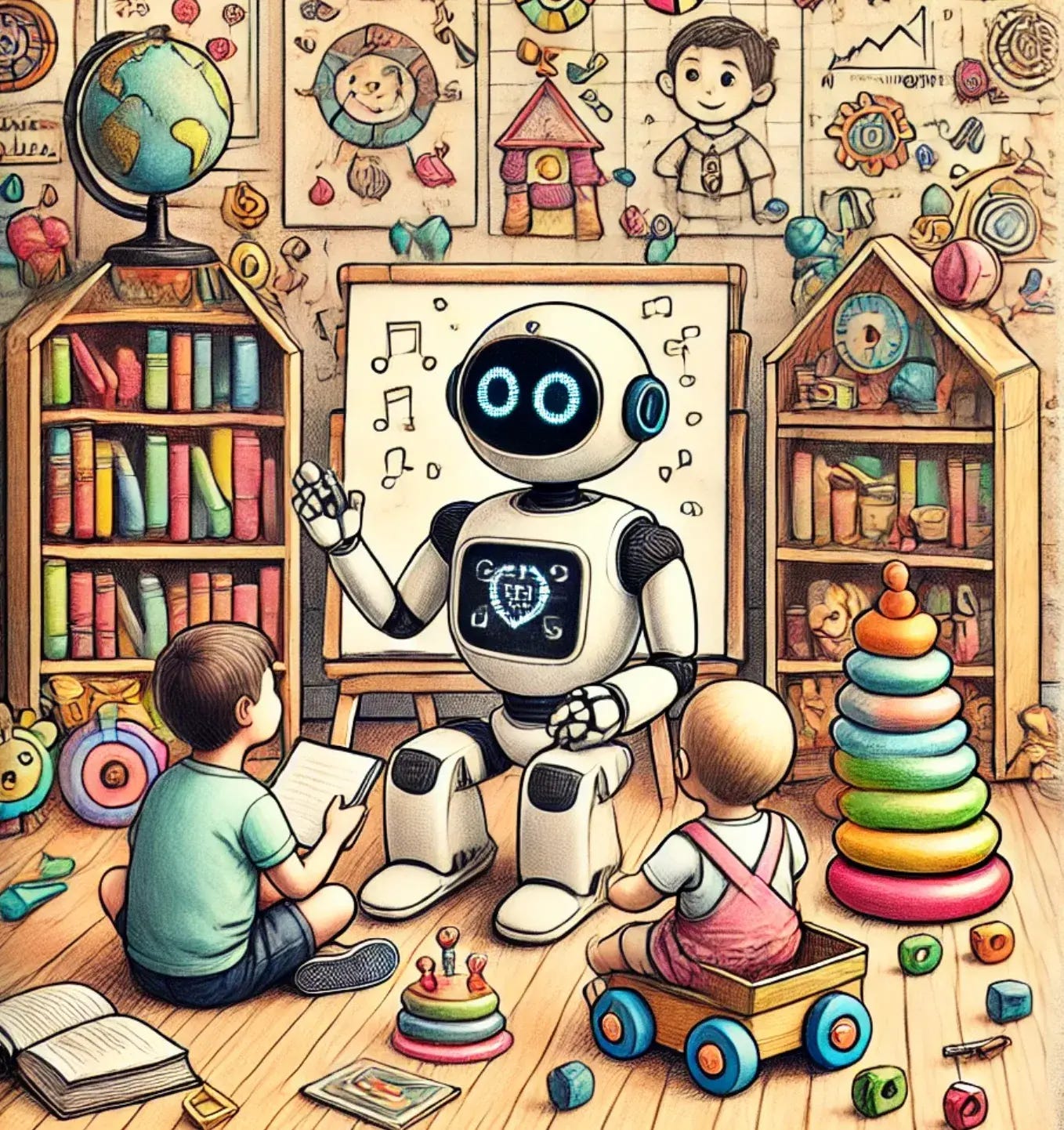The Long-Term Consequences of Creating and Consuming AI Content
Scholars have begun to demonstrate that technology is having generation-shaping effects, not merely in the way it influences cultural outlook, behavior and privacy, but also in the way it can shape personality among those brought up on social media.¹ – Nora McDonald, Assistant Professor of Information Technology, George Mason University I’ve often referred to my generation, the Xennials (those born between 1977-83), as being the last to really know what it’s like to grow up without being immersed in tech. Most scholars who study generational trends would agree and describe Xennials as having an “analog childhood but a digital young adulthood.” This perspective – as the last generation to know what life was like before smartphones, social media, and most definitely AI – has a huge influence on my opinion of AI generated content. I’m certainly not against the overall use of AI. I use it almost daily myself. However, I have developed a strong aversion to AI writing. When I refer to AI writing, I don’t mean using ChatGPT to write a one-liner generic description of something that doesn’t require any original thought or input. What I’m talking about is the type of shenanigans we’ve seen where companies have fired their writers and replaced their work output with entire articles written solely by AI. ² ³ I don’t just have an ethical issue with it in the sense of supporting workers’ rights, but the problem is that the articles are, for the most part, terrible. They’re not bad because AI wrote them. They’re bad because they’re bad. ⁴ Most of us recognize this already, which is why there was this Twitter trend in 2023 where people in various overlapping industries were joking that “everybody wants to produce AI content, but nobody wants to read AI content.” But for me it goes beyond quality. With the rate at which we’re going, in a few years, the quality is likely to continue improving so in the long-term, it (probably) won’t even be a valid problem. So then what is the problem? There are several. I don’t claim to have the “right” answers to these issues, but I do have a lot of thoughts and questions that I think we should all be asking ourselves. Below is my contribution to this conversation. AI is the new gwai loThere’s a scene in the 1988 martial-arts action movie classic Bloodsport, where Frank Dux, played by Jean Claude Van Damme, is talking to Senzo Tanaka, played by Roy Chiao. In that scene, Dux is trying to convince Tanaka to continue training him after the death of Tanaka’s son. Tanaka is hesitant to the idea. As he initially explains to Dux:
Dux passionately responds by telling Tanaka to teach him and that he can do it, to which Roy Chiao’s character firmly says:
The message is clear: we don’t pass our knowledge on to those who are not in our group. There’s a similar theme of not trusting outsiders with insider knowledge in the Bruce Lee biopic, Dragon: the Bruce Lee Story. In the movie, which is loosely based on the legendary martial artist’s life, a young Bruce starts teaching martial arts to non-Chinese in California. The local Chinese elders have a problem with it, and at one point in the film one of them instructs Bruce to stop teaching the “gwai lo” (foreigners). Of course Bruce ignores them, as he did in real life, but were the elders wrong? Or was Bruce wrong? I’ve asked myself this question in the past – well before the AI era that we’re in now – and ultimately I came to the conclusion that neither side was right or wrong. Both positions had their own pros and cons, and each had their own consequences – though, of course, we only saw the consequences of the road that was taken. The AI connectionWhat’s the analogy here? The analogy is that all the people who currently work with generative AI, large language models, small language models, etc, are all basically in the same position that Bruce Lee was in: They are the knowledge gatekeepers. And similar to Mr. Lee, they’ve decided to trust “the outsiders,” except in this situation, the outsiders aren’t human. They are insatiable algorithms consuming every morsel of human knowledge being fed to them. We’ve already witnessed the initial effects of this firsthand:
All this and we’re not even two full years in. To be clear, I’m not suggesting all of it is bad. As I said in the beginning, I use AI tools myself almost daily. But it’s hard to not be bothered by the AI-polluted search results I see on a daily basis, and to not wonder what the long game is here. Your worldview, shaped and formed by AIThere’s another additional layer to this that we can pull from Tanaka’s “father to son, father to son” line. That line is simple enough but it underscores an important point about transfer of knowledge and the lineage of our own knowledge. I’ve read countless books over the course of my lifetime and I have no doubt in my mind that my worldview and the way I generally think about a lot of things has been shaped by the collective sum of all the human knowledge I’ve learned from reading the books that I’ve read. This has been the human experience, going back thousands of years, all the way to the Epic of Gilgamesh and likely even earlier. Even in societies that didn’t develop writing systems, they shared their knowledge through oral tradition, or through dance, combat systems, and other forms of kinesthetic knowledge. But all of that has suddenly changed. Literally in less than two years. We now have – as I’m typing these words – young kids who’s minds are being shaped and formed by AI. Writer Erik Hoel wrote about it a few months ago on his Substack, and he was as equally disturbed / concerned about it as I am:
For two thousand and twenty-three years, knowledge pass from father/mother to son/daughter, father/mother to son/daughter…and now, as of last year, from AI to son/daughter. But what happens when AI starts writing more complex text that’s not just teaching toddlers their ABCs, but is teaching college students how to understand the world and make decisions? What happens when worldviews are being shaped and formed by algorithms rather than our own species? My gut feeling says that there’s no way this is going to benefit humanity in the long run. Regardless though, whether it’s good or bad, it will ultimately alter our trajectory as a species. What do you think? Are you worried at all about the long-term impact of AI’s influence on the future of humanity and our planet? Share your thoughts in the comments. References 1 https://theconversation.com/teens-see-social-media-algorithms-as-accurate-reflections-of-themselves-study-finds-226302 2 https://www.theverge.com/2023/1/25/23571082/cnet-ai-written-stories-errors-corrections-red-ventures 3 https://futurism.com/sports-illustrated-ai-generated-writers 4 https://www.cnn.com/interactive/2023/07/business/detect-ai-text-human-writing/ Invite your friends and earn rewardsIf you enjoy Bizarro Devs, share it with your friends and earn rewards when they subscribe. |
Older messages
Issue 161
Tuesday, November 5, 2024
🤖👮 Atlanta prison introduces 6-foot tall AI-powered robot guards. Meta's blood money: how Facebook turns tragedy into profit. OpenAI safety expert quits: "We're not ready for what's
Issue 160
Tuesday, October 1, 2024
🧬👵🏼 Research suggests humans age dramatically when we hit 44 and 60. Scientists create see-through mice using food dye. Vertical farm revolution: year-round berries in a fraction of the space. ͏ ͏ ͏ ͏
Issue 159
Tuesday, September 3, 2024
👨💻🔌 How I used ChatGPT to build my first WordPress plugin. 3 Harvard dropouts have designed a game-changing AI chip. IEEE Spectrum releases annual list of the top programming languages. ͏ ͏ ͏ ͏ ͏ ͏ ͏
Issue 158
Tuesday, August 6, 2024
🤖🃏 AI can strategically lie to humans: are we in trouble? Scientists use nanoparticles to remote control mice brains. Meet the new digital bouncers in North American and Australian bars. ͏ ͏ ͏ ͏ ͏ ͏ ͏
Issue 157
Tuesday, July 2, 2024
🧠🤖 The most dystopian thing you'll read this month (probably). How a smart, quiet Boston teenager stole millions in Crypto. Beyond ATS: AI interviewer ushers in new era of tech hiring. ͏ ͏ ͏ ͏ ͏ ͏
You Might Also Like
Import AI 399: 1,000 samples to make a reasoning model; DeepSeek proliferation; Apple's self-driving car simulator
Friday, February 14, 2025
What came before the golem? ͏ ͏ ͏ ͏ ͏ ͏ ͏ ͏ ͏ ͏ ͏ ͏ ͏ ͏ ͏ ͏ ͏ ͏ ͏ ͏ ͏ ͏ ͏ ͏ ͏ ͏ ͏ ͏ ͏ ͏ ͏ ͏ ͏ ͏ ͏ ͏ ͏ ͏ ͏ ͏ ͏ ͏ ͏ ͏ ͏ ͏ ͏ ͏ ͏ ͏ ͏ ͏ ͏ ͏ ͏ ͏ ͏ ͏ ͏ ͏ ͏ ͏ ͏ ͏ ͏ ͏ ͏ ͏ ͏ ͏ ͏ ͏ ͏ ͏ ͏ ͏ ͏ ͏ ͏ ͏ ͏ ͏ ͏ ͏ ͏ ͏ ͏
Defining Your Paranoia Level: Navigating Change Without the Overkill
Friday, February 14, 2025
We've all been there: trying to learn something new, only to find our old habits holding us back. We discussed today how our gut feelings about solving problems can sometimes be our own worst enemy
5 ways AI can help with taxes 🪄
Friday, February 14, 2025
Remotely control an iPhone; 💸 50+ early Presidents' Day deals -- ZDNET ZDNET Tech Today - US February 10, 2025 5 ways AI can help you with your taxes (and what not to use it for) 5 ways AI can help
Recurring Automations + Secret Updates
Friday, February 14, 2025
Smarter automations, better templates, and hidden updates to explore 👀 ͏ ͏ ͏ ͏ ͏ ͏ ͏ ͏ ͏ ͏ ͏ ͏ ͏ ͏ ͏ ͏ ͏ ͏ ͏ ͏ ͏ ͏ ͏ ͏ ͏ ͏ ͏ ͏ ͏ ͏ ͏ ͏ ͏ ͏ ͏ ͏ ͏ ͏ ͏ ͏ ͏ ͏ ͏ ͏ ͏ ͏ ͏ ͏ ͏ ͏ ͏ ͏ ͏ ͏ ͏ ͏ ͏ ͏ ͏ ͏ ͏ ͏ ͏ ͏ ͏
The First Provable AI-Proof Game: Introducing Butterfly Wings 4
Friday, February 14, 2025
Top Tech Content sent at Noon! Boost Your Article on HackerNoon for $159.99! Read this email in your browser How are you, @newsletterest1? undefined The Market Today #01 Instagram (Meta) 714.52 -0.32%
GCP Newsletter #437
Friday, February 14, 2025
Welcome to issue #437 February 10th, 2025 News BigQuery Cloud Marketplace Official Blog Partners BigQuery datasets now available on Google Cloud Marketplace - Google Cloud Marketplace now offers
Charted | The 1%'s Share of U.S. Wealth Over Time (1989-2024) 💰
Friday, February 14, 2025
Discover how the share of US wealth held by the top 1% has evolved from 1989 to 2024 in this infographic. View Online | Subscribe | Download Our App Download our app to see thousands of new charts from
The Great Social Media Diaspora & Tapestry is here
Friday, February 14, 2025
Apple introduces new app called 'Apple Invites', The Iconfactory launches Tapestry, beyond the traditional portfolio, and more in this week's issue of Creativerly. Creativerly The Great
Daily Coding Problem: Problem #1689 [Medium]
Friday, February 14, 2025
Daily Coding Problem Good morning! Here's your coding interview problem for today. This problem was asked by Google. Given a linked list, sort it in O(n log n) time and constant space. For example,
📧 Stop Conflating CQRS and MediatR
Friday, February 14, 2025
Stop Conflating CQRS and MediatR Read on: my website / Read time: 4 minutes The .NET Weekly is brought to you by: Step right up to the Generative AI Use Cases Repository! See how MongoDB powers your



